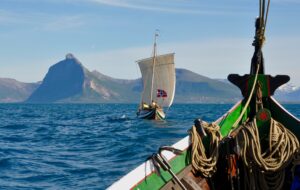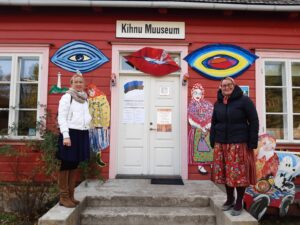Sharing is good practice! We encourage you to share experiences with safeguarding practices with us!
Do you have an idea for an article or questions on the webpage? Contact editor Einar Stamnes : einar.stamnes@handverksinstituttet.no

Nordland boats under sail. Boats have been essential for linking many parts of the Nordic and Baltic region together, bringing trade and cultural contact. A lot of the living heritage in the region exists across borders, such as the clinker boat tradition. Photo: Ulf Mikalsen.
Safeguarding Practices. Call for articles
We are looking for new articles on the safeguarding of intangible/living heritage.
The main purpose of the website www.safeguardingpractices.com is to share experiences in safeguarding intangible cultural heritage in the Nordic and Baltic region. The webpage is developed in collaboration with the Nordic and Baltic network on ICH.
The role of the Convention
It is encouraged to reflect on the role of the Convention for the Safeguarding of the Intangible Cultural Heritage in the articles.
Identifying potential articles
We are interested in a broad range of examples of different safeguarding practices from the whole region.
Some key points to identifying potential articles on safeguarding:
Examples of methods or projects that:
… demonstrate innovative, creative or effective approaches to safeguard intangible/living cultural heritage
… involves the participation of relevant stakeholders such as communities or practitioners.
… is a way forward to identify/document/research; preserve/protect; promote/enhance; transmit; revitalize intangible/living cultural heritage.
… reflects the spirit of the UNESCO 2003 Convention (https://ich.unesco.org/en/convention#art2)

From Delmonas crafting workshops in Klaipėda, Lithuania.
Photo: Klaipėda Centre of Ethnic Culture.
Structure of the article:
Having the same structure on the articles makes it easier to compare the different examples and learn from the experience of others. Please also have a look at the articles already published on www.safeguardingpractices.com.
The structure/section headings of the article should be as follows. (The editor can contribute to the structuring of the articles)
1.Background. Presentation of the ICH practice, and the community, practitioners and bearers concerned.
2.Why safeguard? Identifying threats and the need for safeguarding.
3.Objectives and goals (could be included in the next section)
4.How it was/is done. Strategies and measures used in the safeguarding practice. Sharing experiences from the safeguarding activity.
5.Key factors. Short bullet points or short text on the key factors.
6.Summing up. Reflections. We are not just interested in the success-stories. The examples could also include reflections on the challenges and thoughts about the future.
7.Links, contacts and sources Links can be added to the text. Other links, references, sources, and contacts will be added in the last section of the article.

From the article on the exchange programme for the Nordic and Baltic network. Sharing experiences across the region. Māra Rozentāle from Suiti cultural space in Latvia visiting Mare Mätas at Kihnu Living heritage NGO , Kihnu island, Estonia. Photo/rights: Māra Rozentāle
Article length and details
The articles should be from 500 to 1500 words, in English.
We are looking into the possibilities of later including the text in both English and the original language of the writer/practitioner. So, if the text is translated into English, we are also interested in the article in the original language. A short summary in the first language/mother tongue can also be added to the English article.
Pictures:
Picture credit: Remember photo credit and check with the photographer/owner that the picture can be used on the webpage free of charge.
People shown on the picture must have given their consent for the use of the picture.
Photo Caption: A short text describing the motive, incl. photo credit.
Remember to check the size/quality of the pictures.
Submitting articles
Submissions should be sent to the editor Einar Stamnes
einar.stamnes@handverksinstituttet.no
